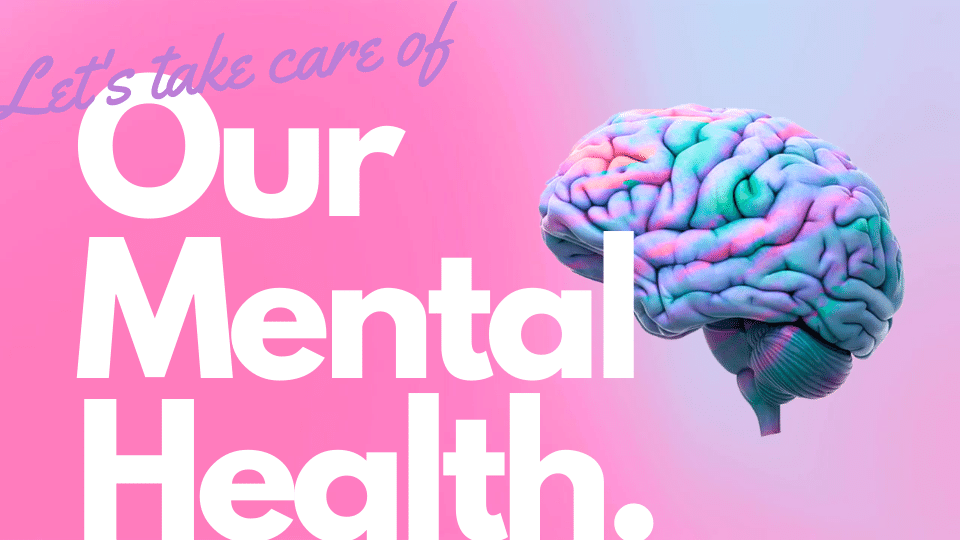Stress Management Techniques: Reduce and Relieve Stress

Stress is a common experience in our fast-paced modern lives, and its impact on mental health cannot be underestimated. The pressures of work, relationships, and everyday responsibilities can take a toll on our well-being, leading to feelings of anxiety, overwhelm, and even burnout.
In this article, we will explore a comprehensive list of effective stress management techniques that can be easily incorporated into your daily life for improved well-being and mental health. Whether you’re looking to start the 2024 new year with a resolution to prioritize self-care or simply seeking practical strategies to reduce stress levels, this guide will provide you with valuable insights and actionable steps.
Why Managing Stress is Important for Mental Health
Understanding stress and its impact on mental health is crucial in order to effectively manage it. When we experience stress, our body’s natural response is to release hormones that trigger the “fight-or-flight” response. While this response is helpful in certain situations, chronic stress can have detrimental effects on our physical and emotional well-being.
The key takeaway from this article is that managing stress is essential for maintaining overall wellness. By incorporating these stress management techniques into your daily routine, you can build resilience, improve your mental health, and lead a more balanced and fulfilling life.
Now let’s dive into the different stress management techniques that can help you navigate the challenges of everyday life.
1. Physical Stress Management Techniques
Addressing the physical aspects of stress management is crucial for overall well-being. This involves regular exercise and a balanced diet, which play essential roles in reducing stress levels and supporting the body’s resilience to stress.
1.1 Exercise for Stress Relief
Physical activities such as yoga, aerobic exercises, and strength training are particularly beneficial for reducing stress levels. These activities promote the release of endorphins, which are natural stress fighters, and provide a healthy outlet for managing tension and anxiety.
1.2 Healthy Eating
Nutrition plays a crucial role in supporting the body’s resilience to stress. Consuming a well-balanced diet that includes High-Protein Vegetarian Foods, complex carbohydrates, and healthy fats can help stabilize blood sugar levels and minimize mood swings. Specific dietary recommendations may include incorporating foods rich in omega-3 fatty acids, such as salmon, flaxseeds, or walnuts, which have been linked to stress reduction.

Practical Tips to Incorporate Exercise and Healthy Eating Habits:
- Prioritize physical activity by scheduling it into your daily routine.
- Engage in activities you enjoy to make exercise more enjoyable and sustainable.
- Plan and prepare nutritious meals in advance to avoid relying on convenience foods during busy periods.
- Gradually incorporate more whole foods, fruits, vegetables, lean proteins, and whole grains into your diet.
By integrating regular exercise and healthy eating habits into your daily life, you can effectively manage physical aspects of stress while promoting overall well-being.
2. Mental and Emotional Stress Management Techniques
Understanding the connection between our thoughts, emotions, and stress responses is crucial in managing mental and emotional stress effectively. By adopting specific techniques, we can promote relaxation, reduce anxiety, and enhance our resilience to stressors. In this section, we will explore two powerful stress management techniques: deep breathing exercises and meditation.
2.1 Deep Breathing: Step-by-step guide to practicing deep breathing exercises for immediate relaxation and anxiety reduction.
Deep breathing exercises are a simple yet effective technique for managing stress and promoting relaxation. They work by activating the body’s natural relaxation response, which helps counteract the physiological effects of stress. Here is a step-by-step guide to practicing deep breathing:
- Find a quiet and comfortable place where you can sit or lie down.
- Close your eyes and take a moment to bring your attention to your breath.
- Slowly inhale through your nose, allowing your abdomen to rise as you fill your lungs with air.
- Hold your breath for a few seconds.
- Exhale slowly through your mouth, emptying your lungs completely.
- Pause for a moment before starting the next breath.
- Repeat this process for several minutes, focusing on the sensation of your breath entering and leaving your body.
By consciously engaging in deep breathing exercises, you can activate the body’s relaxation response, which helps reduce heart rate, lower blood pressure, and promote a sense of calmness.
2.2 Meditation: Exploring different meditation techniques that can help calm the mind and enhance resilience to stressors.
Meditation is another powerful technique for managing mental and emotional stress. It involves training the mind to focus on the present moment while cultivating a sense of calmness and awareness. Here are some popular meditation techniques that can help calm the mind and enhance resilience to stressors:
- Mindfulness meditation: This technique involves paying attention to the present moment without judgment. By observing your thoughts and sensations without getting caught up in them, you can develop a greater sense of self-awareness and reduce stress.
- Guided meditation: This technique involves listening to a recorded voice guiding you through a meditation practice. It can be particularly helpful for beginners or those who prefer a structured approach to meditation.
- Transcendental meditation: This technique involves silently repeating a mantra to focus the mind and achieve a state of deep relaxation. It is often practiced for 20 minutes, twice a day.
- Loving-kindness meditation: This technique involves cultivating feelings of love, compassion, and kindness towards oneself and others. By directing positive intentions towards yourself and others, you can reduce stress and enhance emotional well-being.
By incorporating regular meditation practice into your daily routine, you can cultivate a greater sense of calmness, improve focus, and enhance your ability to cope with stress.

In conclusion, mental and emotional stress management techniques such as deep breathing exercises and meditation can help us relax our minds, reduce anxiety, and build resilience to stressors. By incorporating these practices into our daily lives, we can enhance our overall well-being and improve our ability to cope with various challenges that come our way.
3. Cognitive Strategies for Stress Management
The way we think and approach stress plays a big role in how we handle it. By training ourselves to have a positive mindset and using specific techniques to change our thoughts, we can become better at managing stress and becoming more resilient.
3.1 Cultivating a Positive Outlook
Having a positive outlook means training ourselves to see the good in situations, especially when things are tough. This can make a big difference in how we manage stress.
Positive Thinking Techniques
Here are some techniques that can help us shift our thinking towards positivity:
- Gratitude Practice: Taking time each day to think about things we are grateful for can make us feel more positive and reduce our stress levels.
- Affirmations: Repeating positive statements to ourselves can challenge negative thoughts and help us feel more confident and hopeful.
- Visualization: Imagining ourselves succeeding or having positive experiences can reduce our stress and make us feel more optimistic.
3.2 Cognitive Restructuring
Cognitive restructuring is a method that helps us identify and change the thoughts that contribute to our stress and anxiety. By challenging these thoughts and replacing them with more realistic ones, we can reduce the impact of stress on our mental well-being.
Practical Approach
Here’s how you can use cognitive restructuring to manage your stress:
- Recognizing Negative Thoughts: Pay attention to the negative thoughts that come up when you’re feeling stressed or overwhelmed.
- Questioning Negative Thoughts: Ask yourself if these thoughts are really true or if there might be another way to look at the situation.
- Replacing Negative Thoughts: Once you’ve identified a negative thought, try to come up with a more balanced or positive thought to replace it.
By practicing these cognitive strategies, you can become better at managing stress and taking care of your health.
4. Effective Time Management for Stress Reduction
The way we manage our time can significantly impact our stress levels. By recognizing the role of time in our experience of stress, we can explore strategies to optimize it effectively. Here are some key talking points to consider:
Prioritization Techniques
- Time Blocking: Allocating specific time slots for different tasks or types of work can help you prioritize effectively. For example, you can dedicate the first hour of your workday to tackling high-priority projects before moving on to other tasks.
- Eisenhower Matrix: This method involves categorizing tasks based on their urgency and importance, allowing you to focus on the most critical activities while delegating or eliminating less crucial ones.
- Setting Realistic Goals: Establishing achievable objectives within a given timeframe can prevent feelings of being overwhelmed by an excessive workload.
Setting Boundaries
- Learn to Say No: Setting boundaries often involves learning to decline additional commitments when your plate is already full. It’s essential to prioritize your well-being and avoid overextending yourself.
- Designate “Me Time”: Creating boundaries around personal downtime can ensure that you have opportunities for rest and relaxation, reducing the risk of chronic stress.
By incorporating these time management strategies into your daily routine, you can create a more structured and balanced approach to managing your responsibilities. This, in turn, can help alleviate stress and contribute to a healthier overall well-being.
5. Nurturing Relationships and Seeking Support
The impact of social connections on our ability to cope with stress cannot be overstated. Building a strong support system is crucial for managing stress effectively in various aspects of life. Let’s explore how nurturing relationships and seeking professional help can contribute to your overall well-being.
Cultivating Meaningful Friendships
Cultivating meaningful friendships is an essential aspect of stress management. Here are some practical tips for fostering deep connections with others:
- Active Listening: Make an effort to truly listen when interacting with friends and loved ones. Practice active listening by giving your full attention, maintaining eye contact, and providing verbal cues to show that you understand.
- Empathy: Show empathy towards others by putting yourself in their shoes and acknowledging their feelings. When you empathize with others, it not only strengthens your bond but also creates a supportive environment.
By actively participating in the lives of those around you, you can create a network of trusted individuals who provide emotional support during challenging times.
Professional Help
While the support of friends and family is invaluable, there are instances where seeking assistance from a therapist or counselor becomes necessary for more complex stress-related issues.
- Recognizing the Need: It’s important to recognize when your stress levels or mental well-being require professional intervention. Common signs may include persistent feelings of anxiety, overwhelming emotions, or disruptions in daily functioning.
- How to Seek Assistance: When considering therapy or counseling, start by researching reputable professionals in your area or seeking recommendations from trusted sources. Take the step to schedule an initial consultation to discuss your concerns and determine if the professional is the right fit for your needs.
Seeking professional help is a proactive approach towards managing stress and prioritizing your health.
By nurturing relationships and being open to seeking professional help when needed, you can create a robust support system that bolsters your ability to manage stress effectively.
6. Self-Care Practices to Boost Resilience
Taking care of yourself is essential for staying strong and healthy, especially when faced with life’s challenges. By looking after your physical, mental, emotional, and spiritual well-being, you can improve your ability to handle stress and live a happier life.
6.1 A Well-Rounded Approach to Self-Care
To practice self-care in a holistic way, try focusing on different areas of your well-being:
Physical Self-Care
- Stay active by doing regular exercise or simply moving your body throughout the day.
- Make sure to get enough sleep to recharge and rejuvenate.
- Eat nutritious foods that nourish your body and give you energy.
Mental Self-Care
- Take time to engage in activities that challenge your mind, like reading a book or solving puzzles.
- Learn something new that interests you, whether it’s a new hobby or a skill you’ve always wanted to develop.
Emotional Self-Care
- Practice self-compassion by being kind and understanding towards yourself.
- Allow yourself to feel and acknowledge your emotions without judgment.
- Do things that bring you joy and comfort, whether it’s listening to music or spending time with loved ones.
Spiritual Self-Care
- Find ways to connect with something greater than yourself, whether through meditation, prayer, or spending time in nature.
- Reflect on your values and purpose in life, and make choices aligned with them.
6.2 Activities for Relaxation and Stress Reduction
Finding activities that help you relax and unwind can make a big difference in managing stress. Here are some ideas to try:
Mindfulness Practices
- Practice mindfulness meditation, where you focus on the present moment without judgment.
- Try deep breathing exercises or progressive muscle relaxation to release tension in your body.
Creative Hobbies
- Explore your creative side by painting, writing, gardening, or playing a musical instrument.
- Expressing yourself through art can be a great way to relieve stress and find inner peace.

Spending Time in Nature
- Take advantage of the calming effects of nature by going for walks, hiking, or simply sitting outside.
- Being in natural surroundings can help clear your mind and reduce anxiety.
Socializing with Loved Ones
- Make time for meaningful connections with friends and family members.
- Plan activities together that you all enjoy, whether it’s going out for a meal or playing outdoor games and indoor games at home.
6.3 Making Self-Care a Priority
Incorporating self-care practices and stress-reducing activities into your daily routine may take some effort, but the benefits are worth it. By making yourself a priority and taking care of your well-being, you can build resilience to stress and create a more balanced life.
7. Creating a Supportive Environment
Our physical surroundings and organizational habits play a significant role in either contributing to or alleviating stress levels. By creating a supportive environment, you can effectively manage stress and promote overall well-being. Here are some key points to consider:
7.1 Decluttering Your Space
- Decluttering your living or work area can have psychological benefits by reducing feelings of chaos and overwhelm.
- A tidy and organized space can contribute to a sense of calm and clarity, making it easier to focus and relax.
Practical Tips for Decluttering:
- Start small: Begin with one area or section at a time rather than trying to tackle the entire space all at once.
- Prioritize: Identify the most cluttered areas that cause the most stress and begin decluttering there.
- Donate or discard: Sort through items and decide what to keep, donate, or discard. Letting go of unnecessary items can create a sense of lightness and freedom.
- Organize systematically: Find a specific place for each item to avoid future clutter.
7.2 Time and Task Management Tools
Introduction to Helpful Apps or Techniques:
- Utilizing time and task management tools can streamline your daily responsibilities, reducing feelings of being overwhelmed and stressed.
Examples of Helpful Tools:
- Calendar apps: Use digital calendars to schedule tasks, appointments, and reminders.
- Task management apps: Organize tasks, set deadlines, and track progress using apps like Trello or Todoist.
- Time tracking apps: Monitor how you spend your time to identify inefficiencies and optimize productivity.
Creating a supportive environment involves not only physical spaces but also the tools and systems you use to manage your daily life. By decluttering your surroundings and implementing effective organizational strategies, you can create an environment that fosters peace of mind and reduces stress levels, contributing to improved overall well-being.
8. Mindfulness in Daily Life
In our fast-paced and demanding modern world, stress has become a common companion for many of us. To effectively manage stress and cultivate a sense of calm and well-being, incorporating mindfulness principles into our everyday routines can be a powerful antidote.
What is Mindfulness?
Mindfulness is the practice of bringing our attention to the present moment with an open and non-judgmental attitude. By cultivating present moment awareness, we can reduce stress and enhance our mental health.
How to Practice Mindfulness in Daily Life
1. Mindful Eating
One area where we can bring mindfulness into our lives is through our eating habits. Mindful eating involves paying full attention to the experience of eating, savoring each bite, and cultivating a healthier relationship with food. Here are some tips to practice mindful eating:
- Slow down: Take the time to appreciate your meal by eating slowly and savoring each mouthful. Pay attention to the flavors, textures, and aromas of the food.
- Engage your senses: Notice the colors, smells, and sounds of your meal. Fully engage your senses in the experience.
- Chew thoroughly: Take the time to chew your food thoroughly before swallowing. This not only aids digestion but also allows you to fully taste and appreciate your meal.
- Be present: Avoid distractions during meals such as television or smartphones. Instead, focus on the sensations of eating and enjoying your food.
By incorporating these mindful eating practices into your daily life, you can develop a more positive relationship with food and reduce stress around mealtimes.
2. Bringing Mindfulness to Work
The workplace can often be a source of stress and pressure. However, by bringing mindfulness into our work routines, we can stay focused and calm amidst work-related pressures. Here are some techniques to help you bring mindfulness to work:
- Start your day mindfully: Begin your workday by taking a few moments to center yourself. Take a few deep breaths, set your intentions for the day, and mentally prepare yourself for the tasks ahead.
- Take mindful breaks: Throughout the day, take short breaks to bring your attention back to the present moment. Use these breaks to engage in mindful activities such as deep breathing, stretching, or simply observing your surroundings.
- Practice single-tasking: Instead of multitasking, focus on one task at a time. Give it your full attention and bring mindfulness to each action you take.
- Cultivate gratitude: Take a moment to reflect on what you appreciate about your work and express gratitude for the opportunities it provides. This can help shift your mindset from stress to appreciation.
By incorporating mindfulness into your workday, you can reduce stress levels and enhance your productivity and overall well-being.
Mindfulness is a practice that can be incorporated into various aspects of our lives. By embracing present moment awareness, we can reduce stress, improve our health, and nurture a deeper sense of well-being. Whether it’s through mindful eating or bringing mindfulness to work, these techniques offer practical ways to integrate mindfulness into our daily routines.
Note: Remember that mindfulness is a skill that requires practice and patience. Start with small steps and gradually incorporate more mindful moments into your day.
9. Flexibility and Adaptability
Flexibility in stress management is a crucial skill that helps us navigate uncertain times with greater ease. It involves developing a mindset that is open to change and adapting our coping strategies as needed. By embracing flexibility, we can build resilience and effectively manage stress. In this section, we will explore the importance of accepting change and developing resilience skills.
9.1 Embracing Change
Resisting change can intensify stress and make it more difficult to cope with challenging situations. Instead of fighting against change, cultivating acceptance can help us navigate transitions with less resistance and anxiety.
Key Points to Consider:
- Understand the nature of change: Change is an inevitable part of life. It can be sudden or gradual, planned or unexpected. Recognizing that change is a natural process can shift our perspective and reduce stress.
- Practice mindfulness: Mindfulness involves being fully present in the moment without judgment. By practicing mindfulness, we can cultivate acceptance and develop a more flexible mindset when faced with change.
- Reframe your mindset: Rather than viewing change as a threat, try to see it as an opportunity for growth and learning. Shifting your mindset from fear to curiosity can help you embrace change with less resistance.
9.2 Building Resilience
Resilience is the ability to bounce back from adversity and adapt to challenges. It is an essential skill for effectively managing stress.
Practical Exercises to Enhance Your Resilience Skills:
- Cultivate self-awareness: Take time to reflect on your strengths, values, and personal resources. Understanding yourself better can help you tap into your resilience during difficult times.
- Develop problem-solving skills: When faced with stressful situations, break them down into smaller, manageable steps. This approach allows you to focus on finding solutions rather than feeling overwhelmed by the entire situation.
- Build a support network: Surround yourself with supportive and positive individuals who can provide encouragement and guidance. Sharing your experiences with others can help you gain new perspectives and insights.
- Practice self-care: Taking care of yourself physically, mentally, and emotionally is crucial for building resilience. Engage in activities that bring you joy and relaxation, such as exercise, hobbies, or spending time in nature.
- Cultivate optimism: Optimism is a key attribute of resilient individuals. Practice reframing negative thoughts into more positive and realistic ones. Focus on finding silver linings and learning opportunities in challenging situations.
By embracing flexibility and developing resilience skills, you will be better equipped to navigate stressful situations with greater ease. Remember that stress management is a continuous process, and it may take time to incorporate these techniques into your daily life. Be patient with yourself and celebrate small victories along the way.
10. The Role of Humor in Stress Relief
Laughter is often referred to as the best medicine, and for good reason. Humor has a remarkable ability to alleviate stress and promote overall well-being. In this section, we will explore the science behind laughter’s positive effects on both our physical and mental health, as well as practical strategies to cultivate a lighter perspective and incorporate laughter into our daily lives.
Exploring the Science Behind Laughter’s Positive Effects
Laughter triggers a cascade of physiological responses that can help counteract the negative effects of stress. When we laugh, our body releases endorphins, which are natural painkillers that promote feelings of happiness and relaxation. Additionally, laughter increases oxygen intake and stimulates circulation, boosting our immune system and improving cardiovascular health.
On a psychological level, laughter acts as a powerful stress reliever by reducing levels of stress hormones such as cortisol and adrenaline. It also promotes the release of neurotransmitters like dopamine and serotonin, which are associated with feelings of pleasure and well-being.
Cultivating a Lighter Perspective
Incorporating humor into our lives can help us develop a lighter perspective and not take things too seriously. Here are some strategies to help you find humor in everyday life:
- Find joy in the little things: Take time to appreciate the small moments of humor that occur throughout your day. It could be a funny meme, a witty remark from a colleague, or a humorous interaction with a friend or family member.
- Surround yourself with laughter: Spend time with people who have a great sense of humor. Their infectious laughter and positive outlook can uplift your spirits and help you see the lighter side of life.
- Watch or read comedy: Engage in activities that make you laugh, such as watching funny movies or TV shows, reading humorous books or comics, or listening to comedy podcasts. These can provide instant stress relief and help you shift your focus away from stressors.
Laughter Yoga: A Unique Practice for Stress Relief
Laughter yoga is an unconventional yet effective practice that combines laughter exercises with deep breathing techniques. It was developed by Dr. Madan Kataria in the 1990s and has since gained popularity worldwide. Here’s how it works:
- Laughter exercises: In a laughter yoga session, participants engage in a series of playful exercises designed to induce laughter. These exercises can include fake laughter, group laughter, and even laughter games.
- Deep breathing: Deep breathing techniques are incorporated into the practice to enhance relaxation and oxygenation of the body. The combination of deep breathing and laughter creates a powerful stress-relieving effect.
Laughter yoga sessions can be done individually or in groups, and they are suitable for people of all ages and fitness levels. Even if the laughter starts off as forced or artificial, it often transitions into genuine laughter as the session progresses.

Humor is a valuable tool for managing stress and promoting overall well-being. By understanding the science behind laughter’s positive effects and incorporating strategies to cultivate a lighter perspective, we can harness the power of humor to relieve stress in our daily lives. Additionally, practices like laughter yoga offer a unique and enjoyable way to incorporate laughter and deep breathing into our routine for maximum stress relief.
So go ahead, embrace your inner comedian, and let laughter be your ally in the battle against stress!
Long-Term Strategies for Sustainable Stress Management
Encouraging a holistic approach to stress management by making enduring changes in various areas of life is essential for long-term well-being. These long-term strategies for stress management involve lifestyle changes and the cultivation of healthy habits that support overall resilience to stress. Here are some key points to consider:
11.1 Nourishing Sleep Routine
Quality sleep is crucial for stress resilience and overall health. Creating optimal conditions for quality sleep involves:
- Establishing a consistent sleep schedule
- Creating a relaxing bedtime routine
- Ensuring a comfortable sleep environment
Avoiding stimulants such as caffeine and electronic devices before bedtime can also contribute to a nourishing sleep routine.
11.2 Embodying Mind-Body Wellness
Practices such as yoga, tai chi, and qigong can cultivate a harmonious connection between our physical and mental well-being, promoting long-term resilience to stress. These mind-body practices:
- Enhance physical strength and flexibility
- Focus on mindfulness, breath awareness, and relaxation techniques
By incorporating these long-term strategies into your daily life, you can establish a solid foundation for sustainable stress management that prioritizes your overall well-being. These lifestyle changes and healthy habits serve as proactive measures to build resilience and minimize the negative impact of stress on your mental and emotional health.
Seeking Professional Help When Needed
If you’re dealing with chronic or severe stress, it may be beneficial to seek professional help. Here are some signs that indicate the need for professional intervention:
- Feeling overwhelmed by stress or anxiety for an extended period
- Struggling to function normally in your daily life due to stress
- Experiencing ongoing physical symptoms, like headaches or digestive problems, related to stress
- Having difficulty coping with significant life changes or traumatic events
When you notice these signs in yourself, it could be time to consider therapy. Finding a suitable therapist is an important part of this process. You can start by asking people you trust, such as friends, family, or healthcare providers, for recommendations. Additionally, online directories and professional organizations can be useful resources for finding qualified therapists near you.
Once you’ve identified a potential therapist, it’s crucial to approach therapy with an open mind and a willingness to actively participate. Here are some tips for making the most of your therapy experience:
- Be honest and open: Share your experiences and concerns openly with your therapist.
- Ask questions: Don’t hesitate to seek clarification or ask any questions you have during sessions.
- Engage in the process: Actively participate in therapy exercises and homework assignments outside of sessions.
- Give it time: Remember that therapy is a journey, and it may take time to see significant progress.
Therapy sessions can provide a safe environment for exploring the underlying causes of your stress, learning effective coping strategies, and working towards sustainable solutions. It’s important to remember that seeking professional help is an active step towards prioritizing your mental well-being and developing resilience against stressors.
Final Thoughts
Emphasize the importance of consistency and experimentation in finding what works best for you in terms of stress management techniques.
Stress management is a highly individualized journey, and it’s essential to recognize that what works for one person may not work for another. Consistency and experimentation are key in discovering the most effective techniques for managing stress in your life.
- Approach stress management with an open mind and willingness to try out different strategies until you find the ones that resonate with you.
- Remember that stress management is not a one-size-fits-all solution, and it may require ongoing adjustments and fine-tuning.
- Be patient with yourself as you explore various techniques and make room for trial and error along the way.
- Stay committed to the process and remain open to new approaches.
- Build a personalized toolkit of effective stress management techniques that support your overall well-being.








